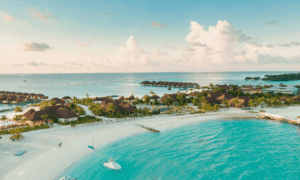Are you a thrill-seeking adventurer who’s been bitten by the wanderlust bug? Or perhaps you’re someone who dreams of exploring new horizons but wonders if age should be a determining factor. Well, fear not! In this exciting blog post, we delve into the intriguing question: Is there an ideal age for backpacking? Get ready to unravel the age conundrum and discover why it’s never too early or late to embark on your backpacking journey.
Introduction
Backpacking, a form of low-budget, independent travel, has been gaining popularity among people of all ages in recent years. It involves carrying a backpack and traveling to different destinations, often for extended periods of time. While it may sound like an adventure that is reserved for young adults or college students, the truth is that there is no specific age limit for backpacking. In fact, individuals from various age groups have successfully embarked on backpacking trips and had life-changing experiences.
The idea that there is an ideal age for backpacking has long been debated by travelers and non-travelers alike. Some believe that it should only be done in your twenties, when you have the energy and flexibility to handle the physical demands of long-term travel. Others argue that as you get older, you may have more financial stability and wisdom, making it a better time to embark on such adventures. So what is the truth? Is there really an ideal age for backpacking?
In this blog article, we will unravel the conundrum surrounding age and backpacking. We will explore how different factors, such as physical ability, mindset, budget constraints, and personal preferences, play a role in determining whether someone can or should go backpacking at a certain age.
The common misconception of age limits in backpacking
Backpacking is often seen as a young person’s activity, with images of carefree college students trekking through exotic destinations and staying in budget hostels. This has led to the common misconception that there is an age limit for backpacking. However, the truth is that anyone can go backpacking, regardless of their age.
One of the main reasons for this misconception is the physical demands associated with backpacking. It requires carrying a heavy load on your back while walking long distances, often over rough terrain. While it may seem daunting for older individuals, it is important to remember that backpacking can be adapted to fit one’s physical abilities. There are various types of backpacks available, including lightweight options and those with better support systems. Additionally, there are many different levels of difficulty when it comes to hiking trails, so individuals can choose routes that suit their fitness levels.
Another factor contributing to this misconception is the perception of safety concerns while traveling alone in unfamiliar places. It is understandable that people may feel more vulnerable as they get older and may be hesitant to embark on solo trips. However, this does not mean that older individuals cannot go backpacking at all. With proper planning and research beforehand, anyone can have a safe and enjoyable trip, regardless of their age.
Moreover, age should not be used as a limiting factor when it comes to experiencing new cultures or trying new things through travel. Backpacking allows individuals to immerse themselves in local communities and gain unique insights into different ways of life. These experiences are not limited by age but rather enhanced by having more life experience and wisdom.
It is also worth mentioning the economic aspect of backpacking in relation to age limits. Many believe that only young people have the time or financial means to go on extended trips abroad. While it may be true that younger adults have fewer responsibilities, such as mortgages or children, there are still plenty of opportunities for older individuals who want to go backpacking. For example, they may have the option to take sabbaticals or early retirement, allowing them to travel for an extended period.
Backpacking is not reserved for a specific age group. The common misconception of age limits when backpacking is simply untrue. With proper preparation and an open mind, individuals of all ages can enjoy this enriching and rewarding experience. So whether you are 18 or 80, do not let your age hold you back from embarking on a backpacking adventure!
Factors to consider when determining the ideal age for backpacking
When it comes to determining the ideal age for backpacking, there are several factors that should be taken into consideration. While there is no specific age that is deemed perfect for backpacking, it ultimately depends on the individual’s physical and mental capabilities, as well as their personal preferences and goals.
The first factor to consider is physical fitness. Backpacking involves carrying a heavy load on your back for extended periods of time, often over rough terrain. It requires a certain level of endurance and strength, so it is important to assess whether you or your travel companions are physically fit enough for this type of activity. Generally, younger individuals tend to have more energy and stamina, making them better suited for long-distance treks. However, this does not mean that older individuals can’t go backpacking; they may just need to train and prepare their bodies beforehand.
Another crucial factor is one’s mental preparedness. Backpacking involves spending extended periods of time in nature with limited access to modern comforts such as electricity or running water. It also requires problem-solving skills, adaptability, and resilience in the face of unexpected challenges. Therefore, it is important to ensure that you or your travel companions feel mentally prepared for this type of trip before embarking on it.
Experience also plays a significant role in determining the ideal age for backpacking. Those who have prior experience with camping or hiking may find it easier to transition into backpacking compared to someone who has never been exposed to these activities before. However, this does not mean that inexperienced individuals cannot go backpacking; they may just need more guidance and support from experienced travelers.
It is also essential to take into account personal preferences when considering the ideal age for backpacking. Some people may prefer a slower pace while others thrive on fast-paced adventures; some may enjoy solo trips while others prefer traveling in groups; some may prioritize budget-friendly options while others are willing to splurge on luxury items along the way. Each person has their own unique travel style, and it is important to consider this when determining the ideal age for backpacking.
One’s goals and expectations for the trip should also be taken into consideration. If your goal is to challenge yourself physically and mentally, then a younger age may be more suitable. However, if you are looking for a more relaxed and leisurely experience, then perhaps an older age would be better. It all depends on what you hope to gain from your backpacking journey.
While there is no perfect age for backpacking, it is important to take these factors into consideration when determining the ideal age for yourself or your travel companions. Ultimately, anyone who is physically fit, mentally prepared, has some level of experience with outdoor activities, and considers personal preferences and goals can embark on a fulfilling backpacking adventure at any age.
Tips for First-Time Backpacking
Backpacking is an exciting and adventurous way to travel, but it can also be quite daunting for first-timers. As with any new experience, there are certain things that can make your trip smoother and more enjoyable. Here are some tips for first-time backpackers to help you make the most of your adventure.
1. Research your destination.
Before embarking on your backpacking journey, it’s important to do thorough research about your destination. This includes understanding the culture, climate, and any potential safety concerns. It’s also a good idea to research popular routes and must-see spots so you have a rough itinerary in mind.
2. Pack light.
One of the biggest rookie mistakes when it comes to backpacking is overpacking. Remember, you’ll be carrying everything on your back, so every kilogram counts! Stick to the essentials, such as clothing suitable for various weather conditions, toiletries, and a first-aid kit. Leave unnecessary items like hairdryers or fancy outfits at home.
3. Invest in quality gear.
While it may be tempting to save money by buying cheaper gear, investing in high-quality equipment will pay off in the long run. A sturdy backpack that fits comfortably is crucial, as it will be carrying all of your belongings for extended periods of time. Make sure to also invest in good-quality hiking boots and a reliable sleeping bag.
4. Know how to use your gear.
It’s not enough just to have the right equipment; you also need to know how to use it properly before heading out on a trip. Practice setting up your tent at home before taking it out into the wilderness, and familiarize yourself with how each piece of gear works.
5. Generate a budget
Backpacking can be an affordable way of traveling, but it still requires money for essential expenses like accommodation and food along the way.
Create a realistic budget that includes all necessary costs, such as transportation, food, accommodations, and any additional activities you want to do. This will help you manage your expenses and avoid overspending.
6. Be prepared for the unexpected.
Backpacking is all about adventure and spontaneity, but it’s important to be prepared for any unexpected situations that may arise. This includes having a contingency plan in case of bad weather or getting lost on a trail. It’s also a good idea to have emergency contacts and know how to get in touch with local authorities if needed.
Conclusion
Backpacker travel is a rewarding and fulfilling experience, but it requires careful planning and preparation, especially for first-timers. By researching your destination, packing light, investing in quality gear, and being prepared for the unexpected, you can have a successful and enjoyable backpacking trip.



































